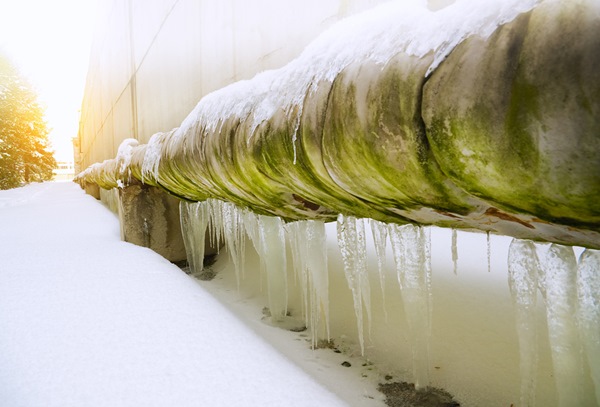How to Prepare Your Water Heater for Winter
In North Carolina, we are not known for necessarily being the most prepared when harsh winter weather arrives. Some now-famous pictures of the “snowpocalypse” of 2014 made Raleigh look particularly bad. But we do have bad storms many years, so it’s important for homeowners to take all potential hazards into account. Making sure your water heater is winter ready is another important box to check. It’s not just about comfort (having hot showers when you come in from the cold), but also about not having pipes bursting and causing flooding and water damage.
So, what should we do as the winter approaches to prepare our water heaters for any potential problems?
- Insulate your pipes – It may seem obvious, but the main problem between a water heater and the winter cold is a temperature battle. For efficiency’s sake, having a well-insulated unit can save you a lot of money since around one fifth of your energy bill is dedicated to heating water. But insulating the pipes can also prevent water inside from freezing if something goes wrong and the weather is below freezing. At any hardware store, you should be able to find pipe sleeves for very cheap (they look kind of like those foam noodles kids play with at the pool).
- Insulate the unit as well – In addition to the pipe sleeves for the pipes, there are actually insulative blankets that should add to the efficiency and safety of your hot water heating system.
- Consider placement of unit – Is your unit in a heated part of your home? Often in older homes and do-it-yourself jobs you’ll see hot water heaters in garages or outdoor closets. This may not be a major problem if you live in the south and the power doesn’t go out in the winter, but it is not the best idea, generally. If your unit is not in a heated area of the house, consider having it moved or adding extra insulation.
- Check exhaust and intake – There are often vents for oxygen intake and for exhaust that lead to and from the outside. This can cause problems if a small animal decides to climb in or if leaves or snow block the openings. CO2 can back up into the house or the unit can simply stop working properly and be damaged by the lack of proper flow. Check that these are free of any obstruction. If there is no metal mesh covering the openings then buy and install some to prevent anything from entering.
- If you plan on going on vacation or leaving your home for the winter, it would be a good idea to invest in a flood stop system. Installed in close proximity to your tanked water heater, a flood stop is hard wired to your existing electrical system and often contains a battery backup. A sensor connected to the flood stop will sit in the water heater pan. If water is detected, the flood stop system will cut off the water supply to that unit and emit a loud alarm, similar to a smoke detector. This is an excellent investment, particularly if your water heater is hidden from frequent view, like in the attic, crawlspace, or external storage closet.
If you remember these five keys, you should have no problems if the power goes out in the dead of winter. Well, you will be cold and may have to skip the warm showers, but you’ll save yourself a lot of time and hassle.

